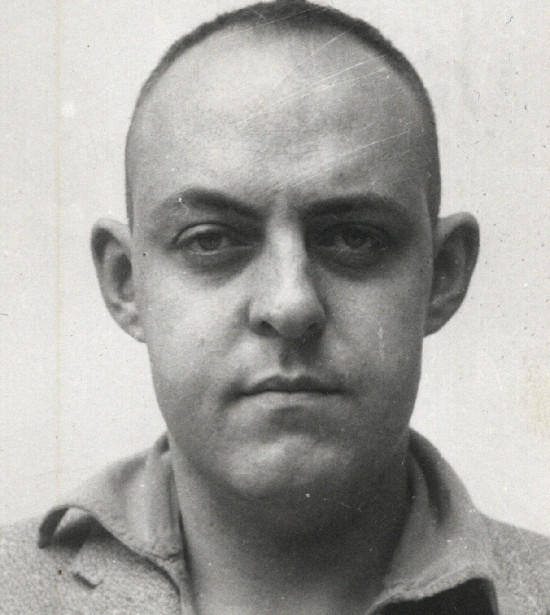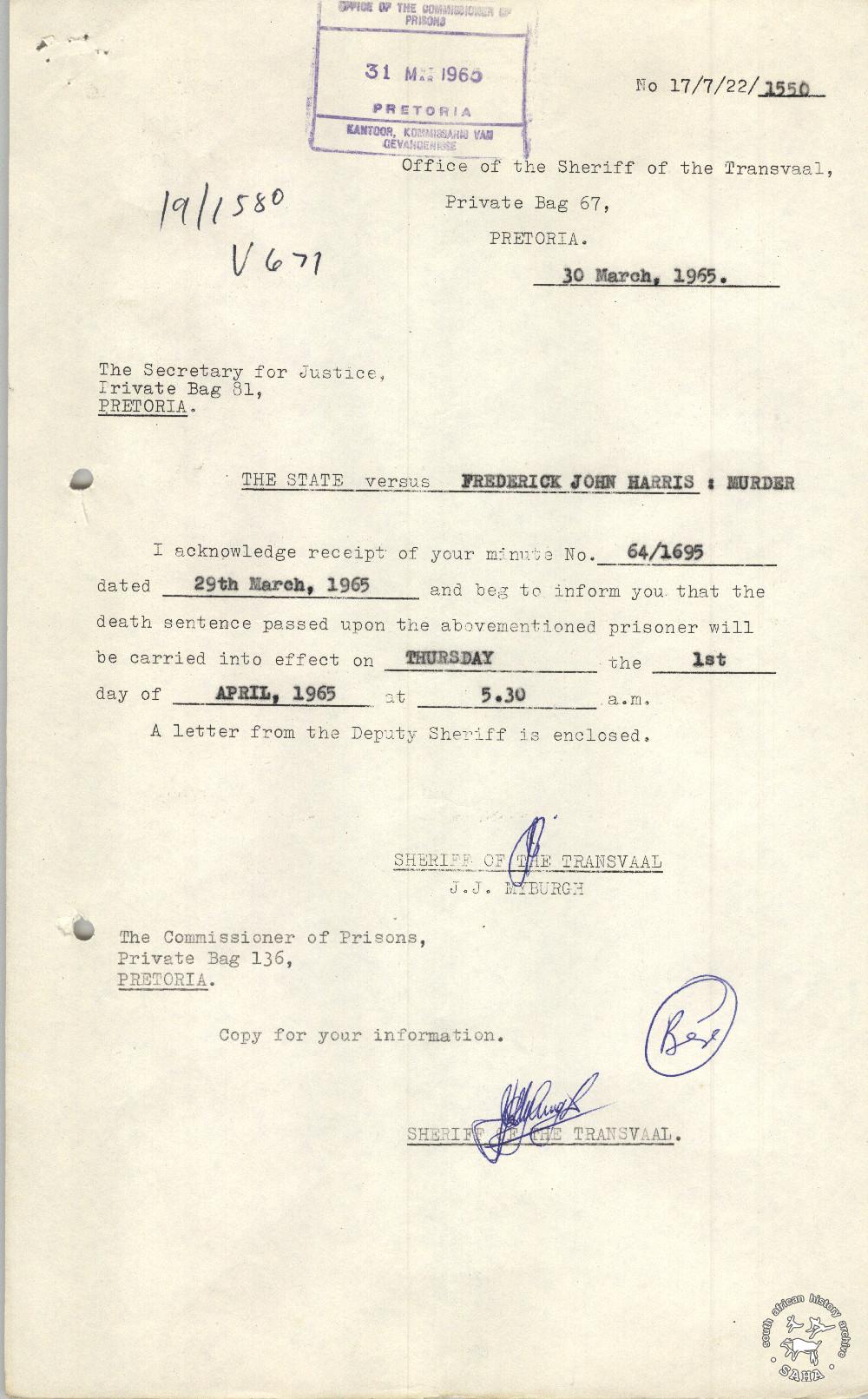At 5.30 on the morning of 1 April 1965 John Harris was executed for the anti-apartheid bombing at the Johannesburg train station which killed Ethel Rhys and injured 23 others. Only 27 years old, he would become the only white person to be hanged for a political offence during apartheid, leaving behind his young wife Ann and baby son David.
which killed Ethel Rhys and injured 23 others. Only 27 years old, he would become the only white person to be hanged for a political offence during apartheid, leaving behind his young wife Ann and baby son David.
Born in 1937, and in later years a passionate teacher and sportsman, John Harris became actively involved in the Liberal Party of South Africa (LPSA) in 1960 and was soon elected to its National Committee. As chairman of the South African Non-Racial Olympic Committee (SAN-ROC) he travelled to Switzerland in 1963 to testify at the International Olympic Committee (IOC), seeking South Africa's exclusion from the 1964 Tokyo Olympics because of its racially discriminatory sports policies. His passport was seized on his return, and a year later he was served with banning orders under the Suppression of Communism Act, 1950.

He later joined the African Resistance Movement (ARM), a militant anti-apartheid resistance movement founded by members of the LPSA. From its first operation in September 1963 the ARM damaged, through bombing, power lines, railroad tracks, roads, bridges and other vulnerable infrastructure until July 1964 without any civilian casualties. But the bomb John Harris planted on 24 July 1964 killed Ethel Rhys and injured 23 other people. He was arrested, following a confession by one of his colleagues, John Lloyd.
The John Harris collection (AL3273) at SAHA bears evidence of this tragic story. Materials in the collection include Harris's police docket, trial records and prison and media files donated by his son David Wolfe. His Security Legislation Directorate (SLD) file, obtained through a Promotion to Access of Information Act, 2000 (PAIA) request, gives insight into Harris's political activities in the years leading up to the bomb explosion. Letters written by Harris to his sister Jane whilst in prison (1964-1965) were also donated by Jane Harris to SAHA. While the letters reflect Harris's day to day existence in the Pretoria prison it also gives insight into his state of mind during the trial and the time leading up to his execution. He wrote his last letter to his sister on 23 March 1965, a week before his walk to the gallows.
In 2010, on the 45th anniversary of his death, Phyllis Naidoo wrote in an article in The Witness, that “While the apartheid government thought it was a joke to execute Harris on April Fools’ Day, we who knew and loved him remember him with much fondness.”
See inventory for the John Harris collection (AL3273)





 which killed Ethel Rhys and injured 23 others. Only 27 years old, he would become the only white person to be hanged for a political offence during apartheid, leaving behind his young wife Ann and baby son David.
which killed Ethel Rhys and injured 23 others. Only 27 years old, he would become the only white person to be hanged for a political offence during apartheid, leaving behind his young wife Ann and baby son David.